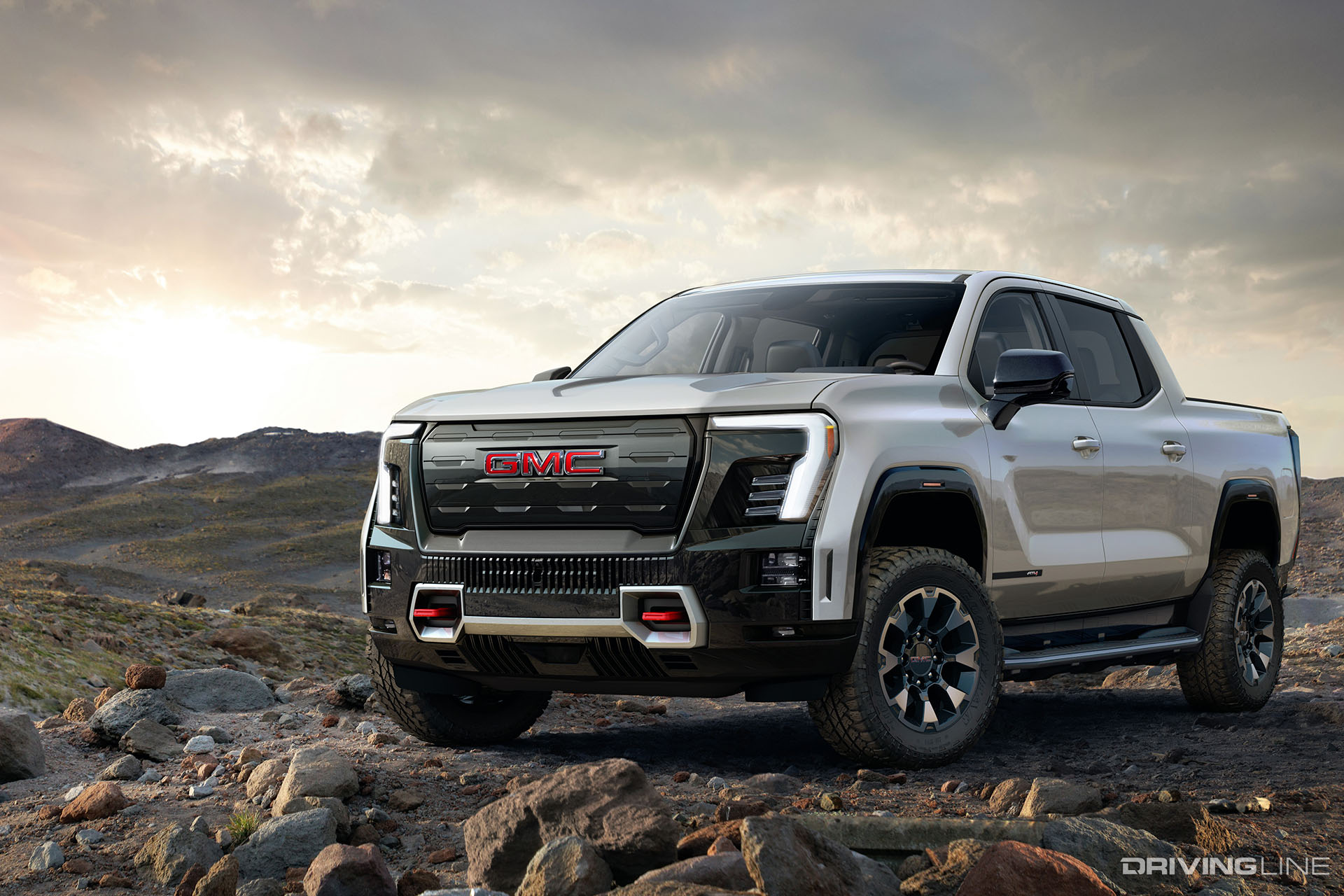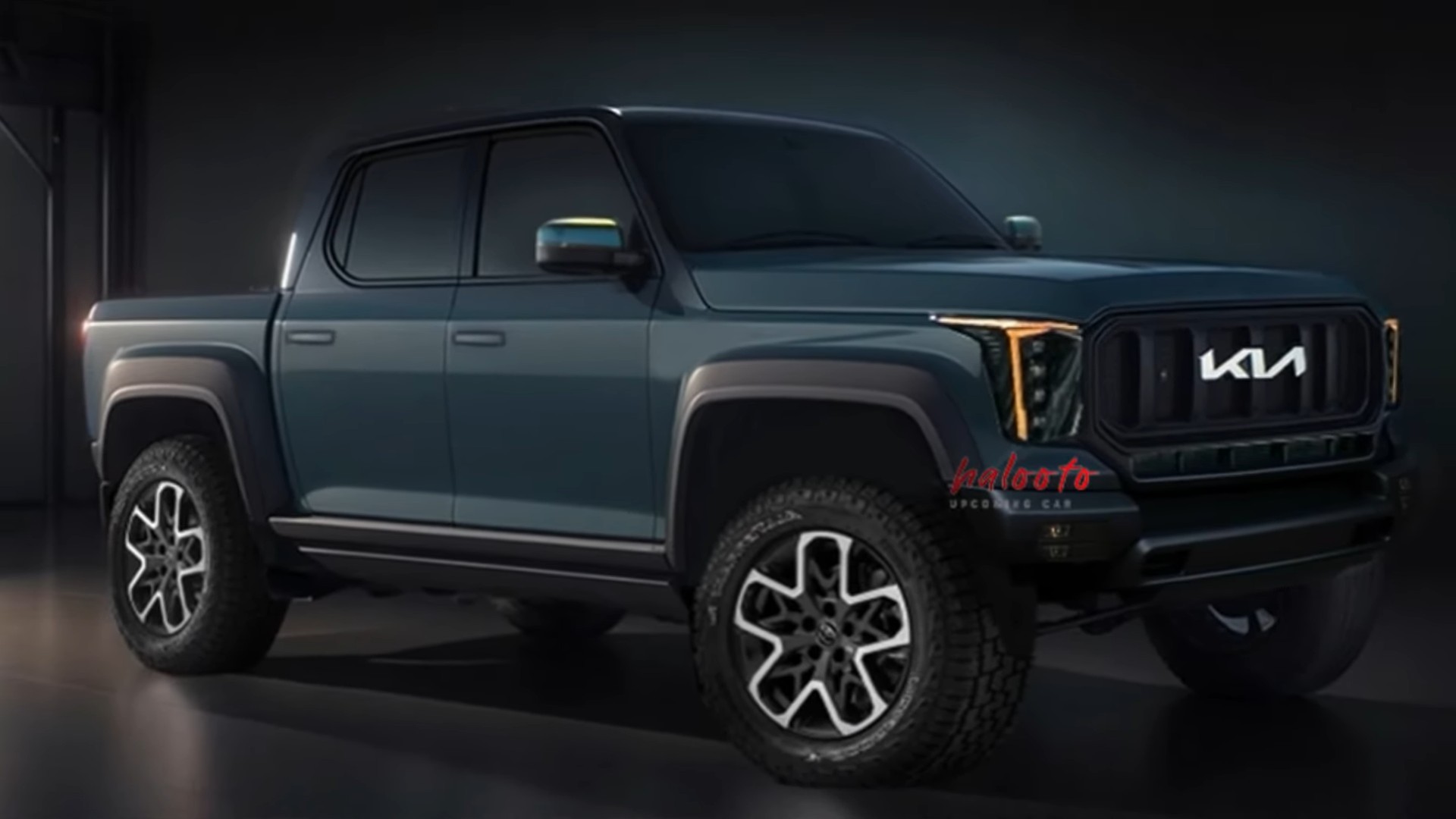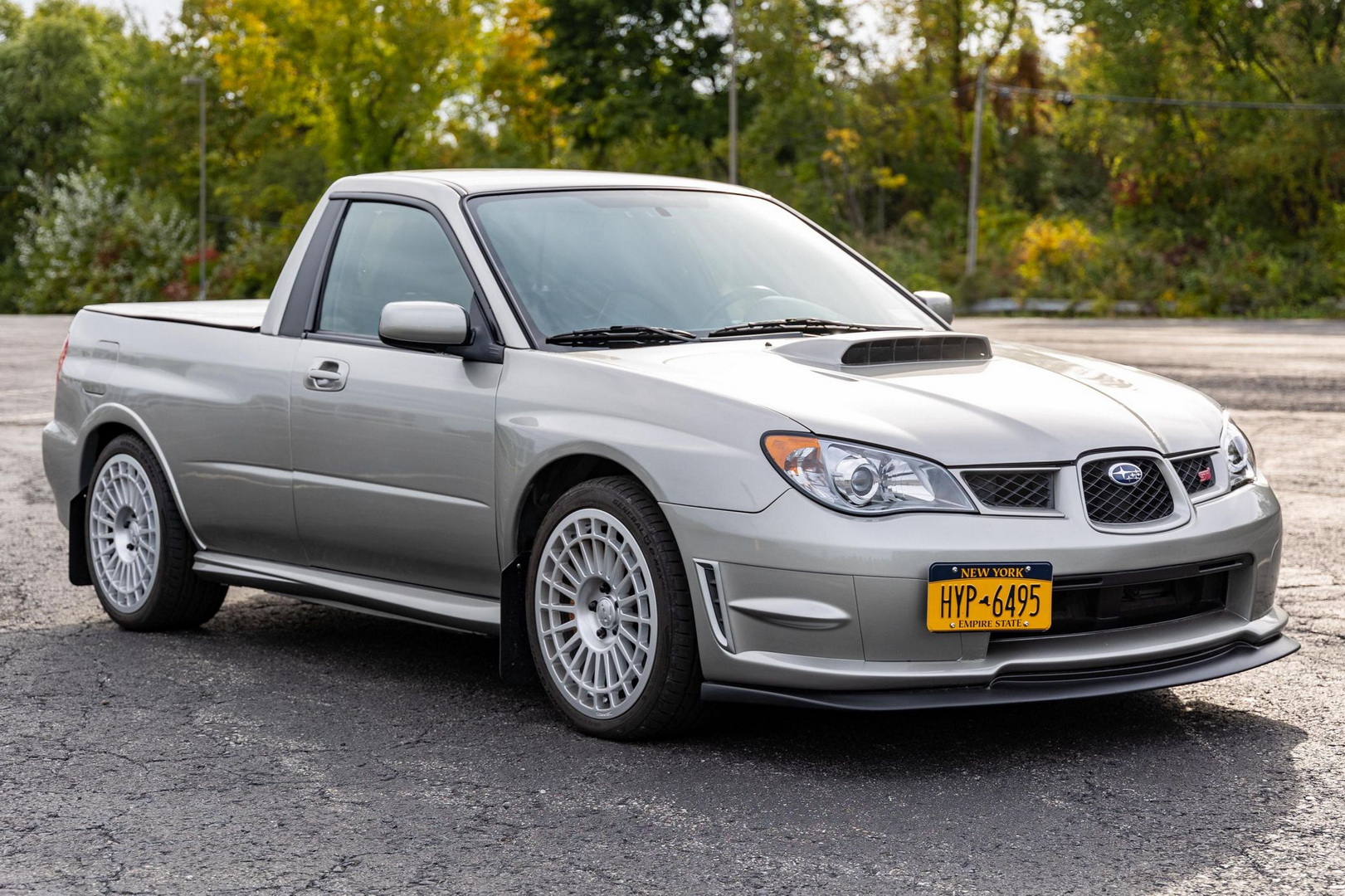Pickup Trucks Leasing: Your Comprehensive Guide to Driving a Workhorse, Smarter pickup.truckstrend.com
Pickup trucks have long been synonymous with capability, utility, and a rugged spirit. From navigating challenging job sites to hauling weekend adventure gear, they are indispensable tools for countless individuals and businesses. While purchasing a pickup truck outright or financing it are traditional routes, pickup truck leasing has emerged as a highly attractive and flexible alternative, offering a pathway to drive the latest models with potentially lower monthly outlays.
Leasing a pickup truck means entering into a contractual agreement to use the vehicle for a set period, typically 24 to 48 months, in exchange for regular monthly payments. Unlike purchasing, you don’t own the truck at the end of the lease term. Instead, you’re essentially paying for the depreciation of the vehicle during your usage period, plus a financing charge. This arrangement makes leasing particularly appealing for those who prioritize driving newer models, managing cash flow, or needing a vehicle primarily for business purposes where tax deductions are beneficial. Understanding the nuances of pickup truck leasing is crucial to determining if it’s the right financial and practical decision for your specific needs.
Pickup Trucks Leasing: Your Comprehensive Guide to Driving a Workhorse, Smarter
What is Pickup Truck Leasing and How Does It Work?
At its core, pickup truck leasing is a long-term rental agreement. You pay to use a new truck for a predetermined period, usually between two and four years, without taking ownership. The monthly payment in a lease agreement is primarily calculated based on three main factors:
- Capitalized Cost (Cap Cost): This is essentially the selling price of the truck, similar to the purchase price. You can negotiate this figure, just like when buying. A lower cap cost means lower monthly payments.
- Residual Value: This is the estimated value of the truck at the end of the lease term. It’s determined by the leasing company and is a crucial number, as your payments cover the difference between the capitalized cost and the residual value. A higher residual value means less depreciation to cover, leading to lower monthly payments.
- Money Factor: This is the leasing equivalent of an interest rate. It’s expressed as a very small decimal (e.g., 0.00250) and can be converted to an annual percentage rate (APR) by multiplying by 2400 (0.00250 * 2400 = 6% APR). A lower money factor reduces your financing cost.

Beyond these, your monthly payment will also include sales tax and any associated fees. At the end of the lease, you typically have three options: return the truck, purchase it for the predetermined residual value, or lease a new one.
The Benefits of Leasing a Pickup Truck
Leasing offers several compelling advantages, particularly for those who appreciate flexibility and predictable budgeting:
- Lower Monthly Payments: Compared to financing the purchase of a new truck, lease payments are generally significantly lower because you’re only paying for the vehicle’s depreciation during your usage period, not its full purchase price.
- Access to Newer Models More Often: Leasing allows you to drive a brand-new truck every few years. This means you consistently benefit from the latest technology, safety features, fuel efficiency improvements, and design updates without the hassle of selling or trading in an older vehicle.
- Lower Upfront Costs: Leases often require less money down than a traditional purchase, or in some cases, no down payment at all, making it easier to get into a new truck.
- Warranty Coverage: Throughout most standard lease terms (2-4 years), the pickup truck remains under the manufacturer’s bumper-to-bumper warranty, covering most repair costs and providing peace of mind.
- Tax Advantages for Businesses: For businesses, lease payments can often be treated as an operating expense, potentially offering significant tax deductions. Consult with a tax professional to understand specific benefits for your business.
- Flexibility at Lease End: At the end of the term, you have clear options: return the truck and walk away, purchase it if you love it and the residual value is favorable, or upgrade to the newest model with a new lease.


Key Considerations Before Leasing a Pickup Truck
While advantageous, leasing isn’t without its specific considerations that require careful thought:
- Mileage Limits: This is perhaps the most critical factor. Lease agreements come with strict annual mileage allowances (e.g., 10,000, 12,000, or 15,000 miles per year). Exceeding this limit results in hefty per-mile penalties (typically $0.15 to $0.25 per mile), which can add up quickly. Accurately assess your driving habits.
- Wear and Tear: Leased vehicles must be returned in "normal wear and tear" condition. Any damage beyond this (e.g., large dents, deep scratches, cracked windshields, significant tire wear) will incur additional charges.
- Early Termination Fees: Deciding to end a lease prematurely can be very expensive. The fees can often amount to several thousands of dollars, making it financially unfeasible unless there’s an option to transfer the lease.
- No Equity Building: Unlike purchasing, you don’t build equity in a leased vehicle. At the end of the term, you own nothing, and there’s no trade-in value to put towards your next vehicle unless you choose to buy it out.
- Customization Limitations: Modifying a leased truck (e.g., lift kits, custom paint, major interior changes) is generally prohibited as it can negatively impact the vehicle’s residual value. Any modifications must be reversible without damage.
- Insurance Requirements: Leasing companies often require higher insurance coverage levels (e.g., higher liability limits, comprehensive, and collision with lower deductibles) compared to what you might choose for an owned vehicle.
Types of Pickup Trucks Suitable for Leasing
Virtually all types of pickup trucks are available for leasing, catering to a wide range of needs:
- Mid-Size Pickups: Models like the Toyota Tacoma, Chevrolet Colorado, Ford Ranger, and Jeep Gladiator are excellent for those needing a versatile truck for lighter hauling, city driving, or off-road adventures. They often have lower monthly payments.
- Light-Duty Full-Size Pickups: The most popular segment, including the Ford F-150, Ram 1500, Chevrolet Silverado 1500, Toyota Tundra, and Nissan Titan. These are ideal for a blend of personal use, daily commuting, and substantial towing/hauling capabilities, offering a wide array of trims and features.
- Heavy-Duty Pickups: For serious towing and hauling, models like the Ford F-250/350, Ram 2500/3500, and Chevrolet Silverado/GMC Sierra 2500/3500 are available. While lease terms might be longer and payments higher, they are often chosen by businesses that require maximum capability.
- Electric Pickups: The emerging market of electric pickups, such as the Ford F-150 Lightning and Rivian R1T, is also available for lease. These often come with attractive incentives due to their novelty and eco-friendly appeal.
The Pickup Truck Leasing Process: A Step-by-Step Guide
Navigating the leasing process can be straightforward if you follow a structured approach:
- Determine Your Needs and Budget: Before anything else, understand your practical needs (towing, payload, passenger capacity) and realistically assess your financial comfort zone for monthly payments and potential end-of-lease costs.
- Research Models and Lease Deals: Look into different truck models that fit your criteria. Crucially, research current manufacturer lease incentives. Automakers often offer special lease deals on specific trims or models to move inventory.
- Check Your Credit Score: Your creditworthiness significantly impacts your "money factor" (interest rate). A good to excellent credit score will unlock the most favorable lease terms.
- Negotiate the Deal: Don’t just focus on the monthly payment. Negotiate the "capitalized cost" (the price of the truck) as if you were buying it. A lower capitalized cost directly translates to a lower lease payment. Also, inquire about the money factor and try to negotiate it down.
- Understand the Lease Agreement: Read every line of the contract. Pay close attention to the lease term, annual mileage allowance, disposition fee (a fee charged at lease end for processing the return), early termination clauses, and the definition of "excessive wear and tear."
- Secure Required Insurance: Contact your insurance provider to ensure you meet the higher coverage requirements typically mandated by leasing companies. Get quotes before signing the lease.
- Take Delivery and Inspect: Before driving off, thoroughly inspect the truck for any pre-existing damage. Document everything, and ensure all features are working correctly.
Tips for a Successful Pickup Truck Lease
To maximize the benefits and minimize the pitfalls of leasing:
- Be Realistic About Mileage: Seriously consider your average annual mileage. If you consistently drive more than 15,000 miles a year, purchasing might be a better option, or consider buying extra miles upfront if offered, as it’s usually cheaper than paying penalties later.
- Maintain the Vehicle Meticulously: Regular maintenance (oil changes, tire rotations) is crucial for both the truck’s performance and to avoid wear and tear charges at lease end. Keep all service records.
- Negotiate Every Aspect: Treat the capitalized cost like a purchase price. Don’t be afraid to negotiate the money factor. Compare offers from multiple dealerships.
- Consider Shorter Terms: If you love having the latest model and technology, a 24- or 36-month lease might be ideal, though payments can be slightly higher than longer terms.
- Budget for End-of-Lease Costs: Account for the disposition fee (typically a few hundred dollars) and any potential excess wear and tear charges. Some lessors offer "wear and tear protection plans" for an added cost, which might be worthwhile if you anticipate minor damages.
Challenges and Solutions in Pickup Truck Leasing
Leasing, like any financial agreement, comes with potential challenges, but often, there are solutions:
- Challenge: Going Over Mileage:
- Solution: Monitor your mileage regularly. If you anticipate exceeding the limit, consider purchasing additional miles from the lessor at a reduced rate compared to end-of-lease penalties. Alternatively, if the truck’s market value is significantly higher than its residual value, buying out the lease might be a viable option, effectively eliminating mileage penalties.
- Challenge: Excessive Wear and Tear:
- Solution: Address minor dents, scratches, or tire wear before the lease ends. Professional detailing and minor repairs can often be cheaper than the charges imposed by the leasing company. Consider purchasing a wear and tear protection plan at the beginning of the lease if offered, especially if you anticipate rough usage.
- Challenge: Early Lease Termination:
- Solution: This is often the most expensive challenge. Explore a lease transfer service (if your lease agreement allows it), where another individual takes over your remaining payments. In some cases, you might be able to negotiate a buyout with the lessor, or even trade it in early with a dealer if your truck’s market value is higher than your remaining lease payments plus residual.
- Challenge: Market Value Fluctuations:
- Solution: If the market value of your truck is significantly higher than its residual value at lease end, you could buy the truck for the residual value and then sell it for a profit, or trade it in. This is rare but can be a pleasant surprise. Conversely, if the market value is much lower, simply return the truck and walk away, as you’re not obligated to buy.
Pickup Trucks Leasing: Illustrative Price Table
The cost of leasing a pickup truck varies dramatically based on the manufacturer, model, trim level, options, lease term, mileage allowance, your credit score, and current promotional incentives. The table below provides illustrative examples based on typical market trends but should not be considered definitive pricing. Always obtain specific quotes for your desired vehicle.
| Truck Type | Example Models | MSRP Range (Approx.) | Typical Monthly Payment (36 mo, 10k miles/yr) | Typical Down Payment (Example) | Lease Term (Years) | Annual Mileage Allowance | Estimated Total Lease Cost (Excl. Fees) |
|---|---|---|---|---|---|---|---|
| Mid-Size Pickup | Toyota Tacoma, Chevy Colorado, Ford Ranger | $30,000 – $45,000 | $350 – $550 | $0 – $2,500 | 2-3 | 10,000 – 12,000 | $12,600 – $19,800 |
| Light-Duty Pickup | Ford F-150, Ram 1500, Chevy Silverado 1500 | $45,000 – $75,000 | $500 – $900 | $0 – $3,500 | 2-3 | 10,000 – 12,000 | $18,000 – $32,400 |
| Heavy-Duty Pickup | Ford F-250/350, Ram 2500/3500, Chevy Silverado HD | $55,000 – $90,000+ | $700 – $1,200+ | $0 – $5,000 | 3-4 | 10,000 – 15,000 | $25,200 – $57,600+ |
| Electric Pickup | Ford F-150 Lightning, Rivian R1T | $60,000 – $95,000+ | $750 – $1,300+ | $0 – $5,000 | 2-3 | 10,000 – 12,000 | $27,000 – $46,800+ |
Disclaimer: The prices above are illustrative examples based on general market trends and can vary significantly based on specific trim levels, options, current manufacturer incentives, dealership markups, regional taxes, creditworthiness, and negotiation. Always get multiple quotes and read the fine print.
Frequently Asked Questions (FAQ) about Pickup Trucks Leasing
Q1: Is leasing a pickup truck cheaper than buying one?
A1: Monthly lease payments are typically lower than loan payments for the same truck because you’re only paying for depreciation. However, over the long term, buying and keeping a truck usually results in lower overall costs as you eventually own the asset. Leasing means you’re always making payments.
Q2: Can I buy the truck at the end of the lease?
A2: Yes, almost all lease agreements include a "purchase option" price, which is the predetermined residual value of the truck. You can buy it outright or finance the purchase.
Q3: What happens if I go over my mileage limit?
A3: You will be charged a per-mile penalty for every mile over your allowance. This charge is typically between $0.15 and $0.25 per mile and can add up quickly.
Q4: Can I customize a leased pickup truck?
A4: Generally, major modifications (like lift kits, significant engine changes, or custom paint) are not allowed as they can negatively impact the truck’s residual value. Minor, easily reversible accessories like bed liners or tonneau covers are usually fine. Always check your lease agreement.
Q5: What is a "money factor" in a lease?
A5: The money factor is the leasing equivalent of an interest rate. It represents the financing charge you pay on the lease. A lower money factor means lower monthly payments.
Q6: What is considered "excessive wear and tear"?
A6: This refers to damage beyond what’s expected from normal use. Examples include large dents, deep scratches, cracked glass, torn upholstery, non-working features, or tires worn below a safe tread depth. Minor dings, small scratches, and normal interior wear are usually acceptable.
Q7: Is a down payment required for a lease?
A7: Not always. Many leases are advertised with $0 down, though putting some money down can significantly lower your monthly payments. Be wary of large down payments on leases, as you lose that money if the vehicle is totaled.
Q8: Can I end my lease early?
A8: Yes, but it’s usually very expensive. Early termination fees can be substantial, often requiring you to pay the remaining depreciation and sometimes a penalty fee. Exploring a lease transfer or negotiating with the lessor are potential alternatives.
Conclusion
Leasing a pickup truck offers a compelling alternative to traditional ownership, particularly for those who desire lower monthly payments, frequent access to the latest models, and predictable budgeting. It’s an especially attractive option for businesses that can leverage the tax advantages. However, it’s crucial to thoroughly understand the terms and conditions, especially regarding mileage limits, wear and tear, and early termination clauses.
By carefully assessing your driving habits, negotiating wisely, and maintaining the vehicle diligently, pickup truck leasing can be a smart and efficient way to put a capable workhorse in your driveway or on your job site. It provides the flexibility to adapt to changing needs, ensuring you always have the right truck for the job, without the long-term commitment of ownership.



